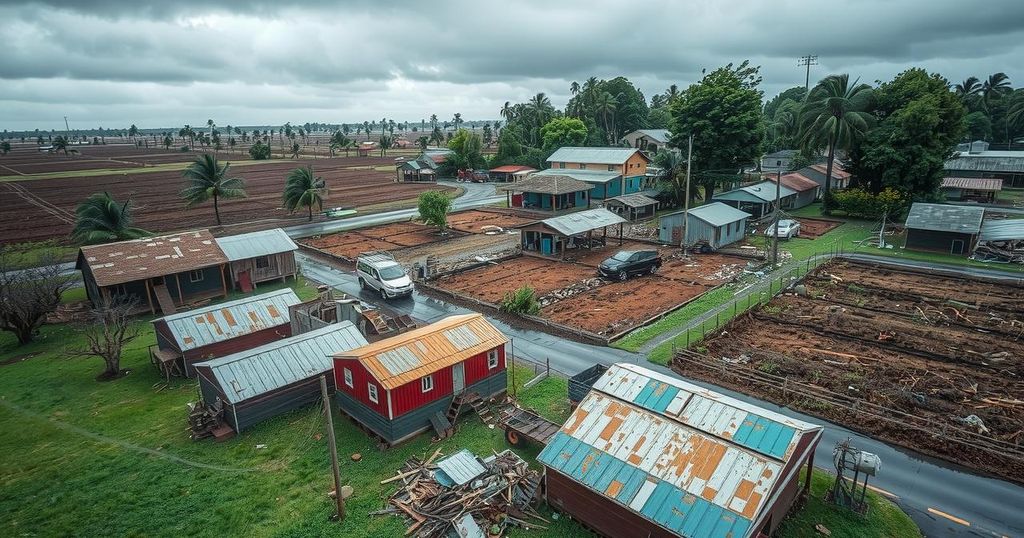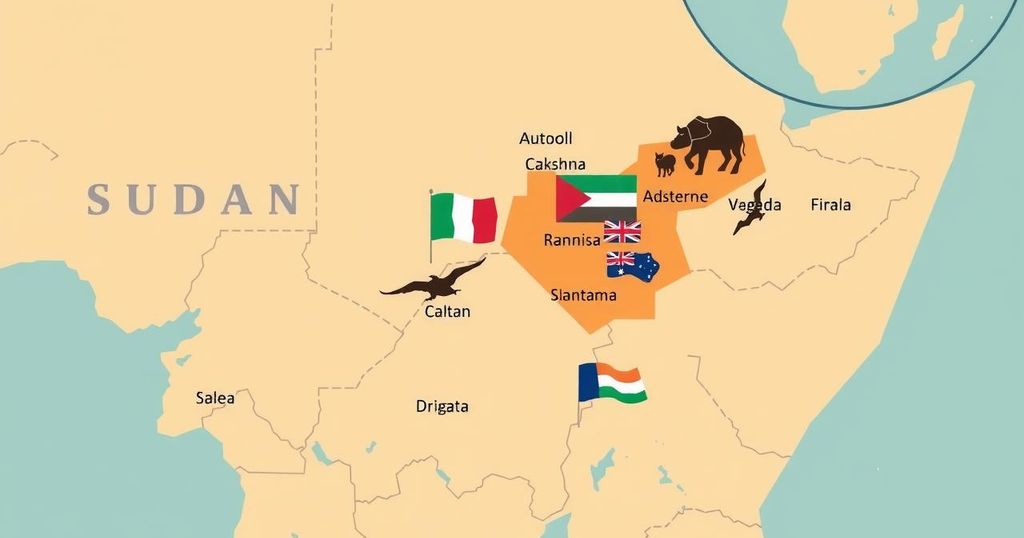Farmers Struggle to Recover from Hurricane Helene’s Devastation in the South
Farmers in Georgia and throughout the South are still suffering from the extensive damage caused by Hurricane Helene, which made landfall as a Category 4 storm on September 26, 2023. The hurricane destroyed crops, uprooted trees, and compromised infrastructure, leading to estimated losses exceeding $10 billion across the region. Recovery efforts are ongoing, and farmers are seeking essential support amid significant challenges, particularly in the cotton and poultry industries.
Farmers across the South, particularly in Georgia, are still grappling with the aftermath of Hurricane Helene, which struck on September 26 as a Category 4 storm, wreaking havoc on crops and infrastructure. The hurricane caused widespread destruction, uprooting pecan trees, overturning irrigation systems, and demolishing poultry houses. Chris Hopkins, a farmer in Toombs County, has expressed the emotional toll this disaster has taken on his livelihood and the uncertainty surrounding recovery efforts.
As of early December, the physical remnants of the storm are visible on farms, with twisted equipment and debris cluttering fields. The economic impact of the hurricane is staggering, with estimates of over $10 billion in damages for agribusinesses, including losses from Florida to Virginia. Hopkins reported that he lost half of his cotton on his 1,400 acres, amounting to significant financial losses, even with insurance.
The damage did not stop at Georgia; farmers in North Carolina calculated losses of $3.1 billion due to record rainfall and flooding. Additionally, states like Virginia, South Carolina, and Florida experienced farm damages costing hundreds of millions of dollars. This storm not only affected crops but also compromised infrastructure crucial for processing and distribution, leading to widespread ramifications for agricultural production.
In response to the devastation, Georgia’s government allocated $100 million in emergency loans to assist farmers, while also prioritizing additional disaster relief at the legislative level. However, constitutional restrictions prevent direct disaster aid to affected individuals and businesses, complicating recovery efforts.
As the recovery continues, farmers like Jeffrey Pridgen are confronting lengthy rebuilding processes after losing significant investments in poultry houses. With an estimated loss of $683 million to Georgia’s poultry industry, the impact of Hurricane Helene persists. Despite the challenges, experts believe that consumer prices are unlikely to rise significantly due to available alternatives from other crop-producing areas.
While Hurricane Helene inflicted significant harm on the agricultural sector, its long-term implications remain a concern for the resilience and sustainability of farming in the affected regions. Farmers must navigate their way through complex recovery processes while contending with market challenges, raising further questions about their future viability in the wake of such natural disasters.
Hurricane Helene exemplified the growing frequency and intensity of natural disasters affecting the agricultural sector. It made landfall in 2023 as a formidable hurricane, devastating crops in its path, particularly in the South. The hurricane had immediate and long-lasting impacts on agribusinesses, highlighting both the vulnerability of farmers and the significance of agricultural output to the economy. The destruction of crops such as cotton and poultry not only results in direct financial losses but also affects the supply chain, local economies, and food production resilience.
In conclusion, Hurricane Helene’s impact on farmers, especially in Georgia, represents a significant challenge to the agricultural community, with losses reaching up to $10 billion across several states. As farmers continue to confront the aftermath, the support systems in place will play a crucial role in their recovery. The call for timely assistance and comprehensive recovery plans highlights the urgent need for addressing disaster preparedness in agriculture. The event also raises awareness about the broader implications of climate change on natural disasters and agricultural resilience.
Original Source: abcnews.go.com




Post Comment